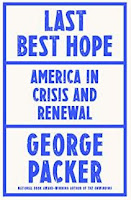I just realized that August 26th is Women’s Equality Day which commemorates the 1920 certification of the 19th Amendment to the Constitution, granting women the right to vote. Given that and the recent controversy resulting in suspension of the Spanish soccer coach, it seemed worth sharing a number of new books which deal with women’s sports or gender bias:
MONEY, POWER, RESPECT is a debut work by Macaela MacKenzie, a journalist most recently at Glamour. Here, she explores “How Women in Sports Are Shaping the Future of Feminism.” Looking first at Money, Mackenzie devotes a chapter each to the pay gap, to underinvestment in women’s sports and to the motherhood penalty. She argues forcefully that these issues occur across industries, but that the public nature of sports means that “the differences in resources are as obvious as the stadiums women play in and the uniforms on their backs, offer[ing] those trying to shortchange women fewer places to hide.” The section on Power has chapters dealing with a collective voice, changemakers, barriers, and recognizing your worth. Again, MacKenzie draws on a variety of instances including prejudiced comments by a former Japanese Prime Minister which resulted in his resignation. The final section, on Respect, contains chapters which deal with sexist images and language, how men feel threatened (e.g., citing data from Accenture and Girls Who Code regarding women in the tech industry), and the importance of visibility and media coverage for women. MacKenzie is adept at illustrating her points with real life cases and at drawing on academic research (like studies of media bias) to support her points. In an author’s note, MacKenzie indicates that she “interviewed dozens of athletes, academics, and activists;” she also lists additional sources in a formal Notes section that comprises roughly twenty percent of the text. MONEY, POWER, RESPECT appeared on several “must read” lists including ones from Time Magazine and the Next Big Idea Book Club.
GLASS WALLS by Amy Diehl and Leanne M. Dzubinski discusses “Shattering the Six Gender Bias Barriers Still Holding Women Back at Work.” Before reading further take a moment and write down your thoughts on what those could be. Diehl, an information technology leader and gender equity researcher, and Dzubinski, an associate Biola University in California, label the barriers as male privilege, disproportionate constraints, insufficient support, devaluation, hostility, and acquiescence. How many did you name? The authors encourage readers to “reflect on how intensely you have been socialized into gender stereotypes that permeate society. And think about how that socialization may be affecting you, even unconsciously.” Diehl and Dzubinski give numerous examples (such as gatekeeping, tokenism, using derogatory language, or interrupting) and often provide specific details by quoting business women or faith leaders (an area where Dzubinski has done previous research). Pointing out that “identifying and exposing bias is the first step to eliminating it,” they also provide helpful, actionable strategies for leaders, allies, and self at the end of each section. Roughly a fourth of the text is devoted to Notes, Bibliography and Index. GLASS WALLS received a starred review from Booklist (“practicality and clarity make this a valuable contribution”).Looking for more reading ideas? McKinsey just posted “Ten
Books by Women Authors in Honor of Women’s Equality Day.” Related
titles we have reviewed include Invisible
Women; Pay
Up; When
Women Lead; Up
to Speed; Controlling
Women; The No
Club; and so many more.






